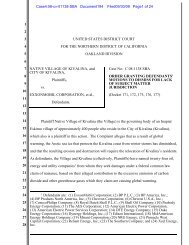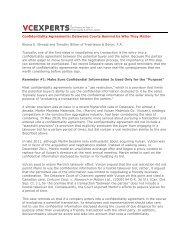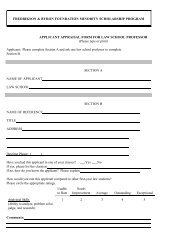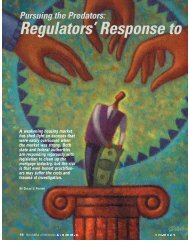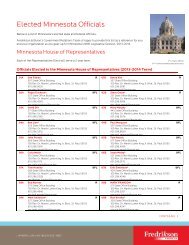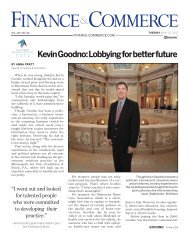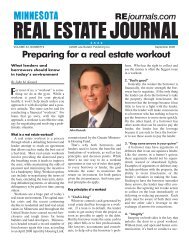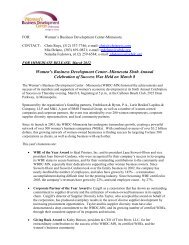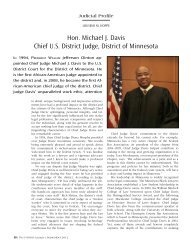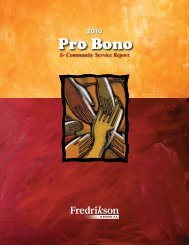Fin 48 - Fredrikson & Byron PA
Fin 48 - Fredrikson & Byron PA
Fin 48 - Fredrikson & Byron PA
You also want an ePaper? Increase the reach of your titles
YUMPU automatically turns print PDFs into web optimized ePapers that Google loves.
opinions are normally applied to a limited set of assumed facts that the lawyer accepts as<br />
reasonable and assumes to be true before the transaction is implemented. In essence, the<br />
opinion is premised on facts that assume away most of the uncertainty that accompanies<br />
disputed fact-finding and characterizations of the transaction after it has occurred and<br />
become subject to audit. It is a wholly distinct proposition, however, to render a MLTN<br />
opinion regarding the merits of the enterprise’s tax position after the transaction has been<br />
performed, often over a period of several years, and the position has become contested<br />
and “uncertain.” The FASB ignored the context in which MLTN tax opinions<br />
traditionally have been given and why that standard cannot be applied with any similar<br />
confidence to a completed transaction.<br />
FIN <strong>48</strong> compounds the uncertainty and burden of applying its MLTN standard by<br />
imposing a continuing obligation upon the enterprise to recognize and de-recognize<br />
disputed tax positions based upon the relevant facts as they become known over time to<br />
management. Under FIN <strong>48</strong>, the enterprise must recognize or de-recognize the tax<br />
treatment of any previously-reported position as of the reporting date for the period in<br />
which its understanding of the facts warrants a change in its calculus of whether the<br />
position is MLTN to be sustained. In so stating, however, the FASB ignores the Form 8-<br />
K disclosure obligations of public companies to report promptly any event that may<br />
materially affect the enterprise’s financial condition, including tax controversies.<br />
FIN <strong>48</strong> also ignores the reality that a tax audit and any resulting litigation can<br />
endure for five to ten years or longer and involve the study of tens of thousands of<br />
documents and the debriefing or examination of numerous witnesses. Management may<br />
12



